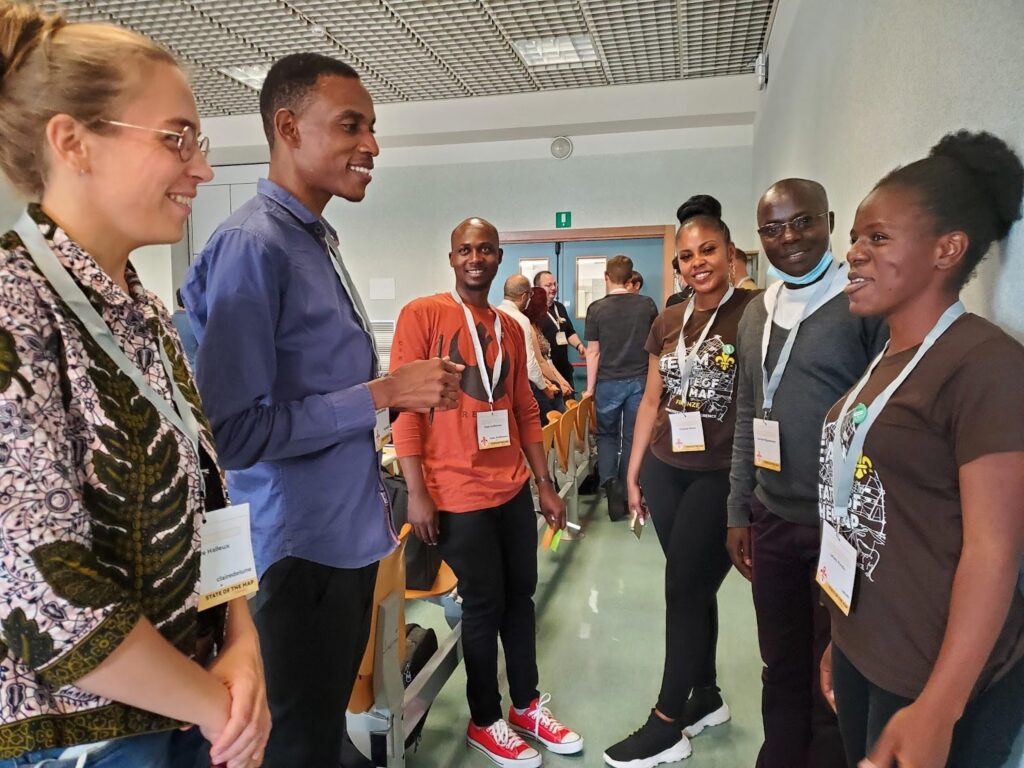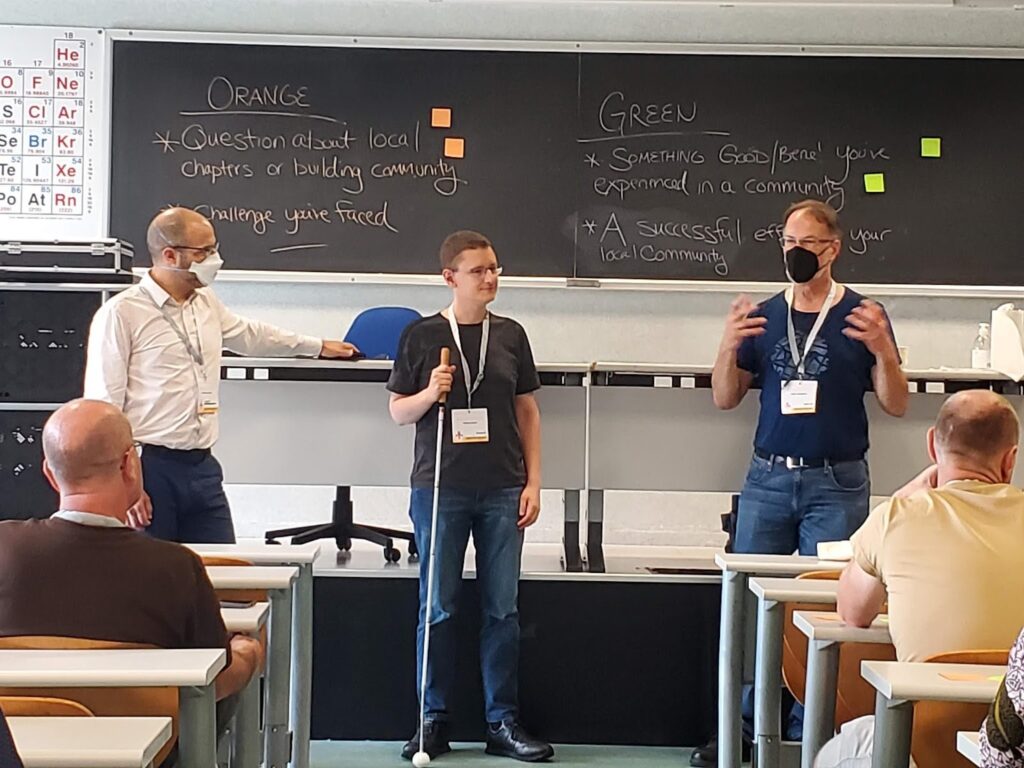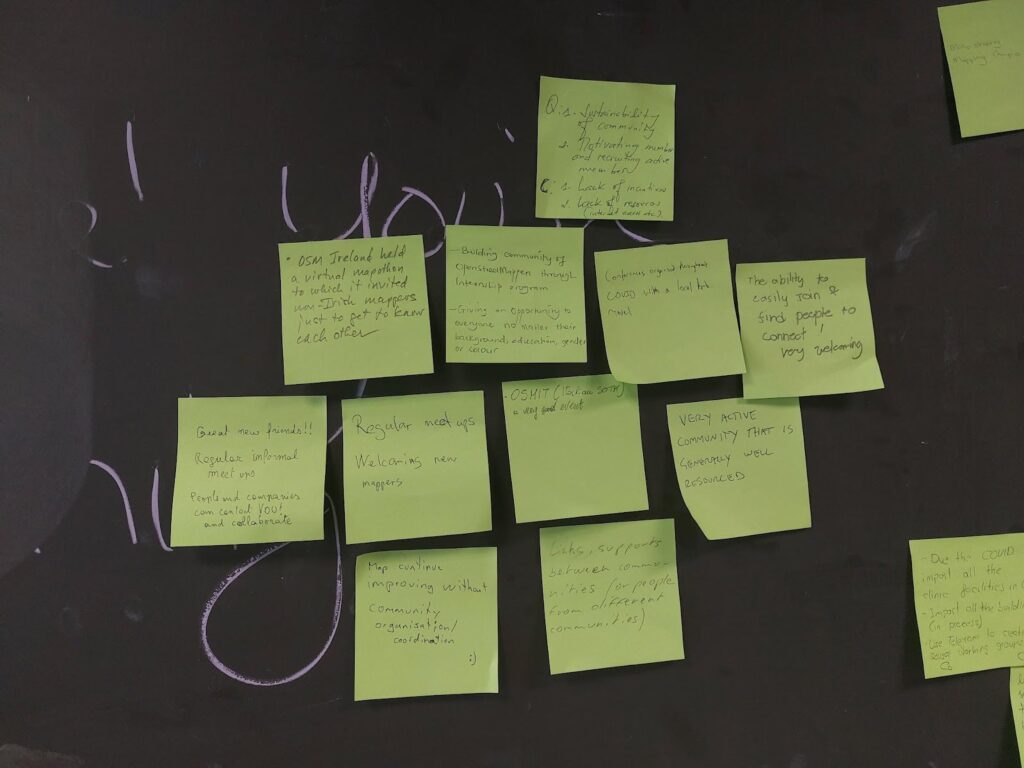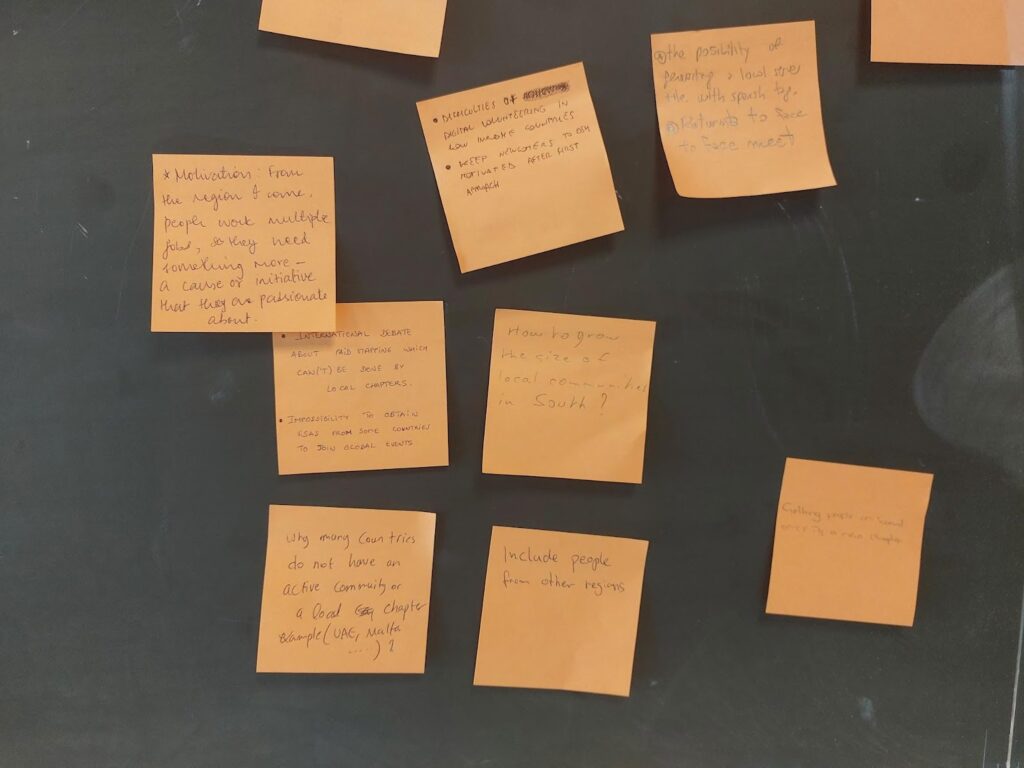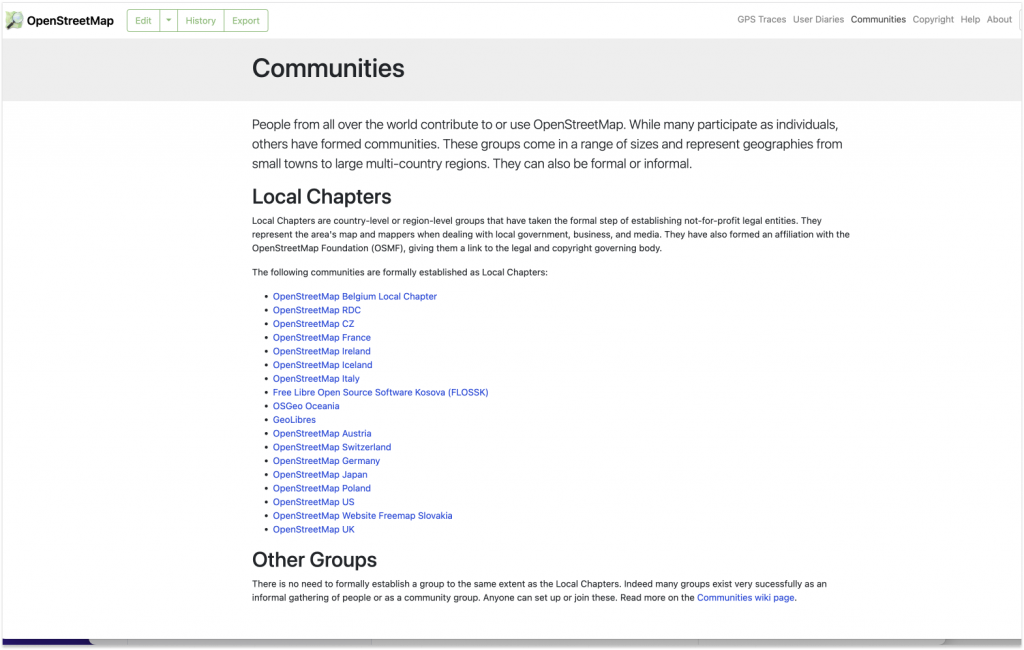In December 2022, four new members were elected to the OpenStreetMap Foundation Board, complimenting the three members already serving. The new members are Arnalie Vicario, Craig Allan, Mateusz Konieczny and Sarah Hoffmann and they join Guillaume Rischard, Mikel Maron and Roland Olbricht.
With regard to the OSMF’s diversity ambitions, this collective of Board members is exciting for two reasons… Firstly, because this is only the second time the OSMF Board has had multiple female members and, secondly, because this is the most geographically diverse board we have seen with representation from across four continents.
So, let’s meet the 2023 Board…
Arnalie Vicario (Philippines)
Arnalie is from the Philippines, and maps under the username arnalielsewhere. She advocates for open data and is passionate about building inclusive spaces in the open mapping and open geo community. She was a GIS Specialist for seven years until she shifted to (online) community engagement in 2020. She works as Online Community Engagement Lead at the Humanitarian Openstreetmap Team (HOT), and as a full time mother.
She has been an OpenStreetMap contributor since 2016, the same year she joined and became part of the OSM community in the Philippines. In 2018, she met her partner at the State of the Map – Milan conference, and reconvened GeoLadies Philippines, an advocacy group for community diversity, collaborative participation, and affirmative spaces especially for women, and under-represented communities in OpenStreetMap. She is a supporter and ally of various communities and networks such as Geochicas, Women+ in Geo, Open Heroines, and more.
You can learn more about her views about community in OpenStreeMap and humanitarian open mapping in the Geomob Podcast Interview – Arnalie Vicario: Building inclusive spaces in OSM as well as through her OSM Diaries.
Craig Allan (South Africa)
Craig comes from a local government background where, as a spatial planner, he received formal training in aerial photo interpretation, photogrammetry and land surveying. He has used commercial GIS systems since the 80’s, starting on the simple but very effective Atlas GIS by Strategic Mapping Inc. and later moving on to the infuriating but effective ARC/INFO by ESRI. Now, he’s a QGIS fan and has used it to support philanthropic work in Rangpur Division, Bangladesh.
Craig concentrates on mapping in Africa under the username, cRaIgalLAn. He appreciates that putting a village on the map may enable residents to be recognised and to receive development support and humanitarian aid. Craig is also very interested in conservation and climate change, so does a lot of mapping of threatened forests in the Democratic Republic of Congo and in several places in Kenya, including the Mara reserve and forests and wetlands inland of Lamu town. He also maps in north Chad because he’s interested in both rock arches and the East Saharan montane xeric woodland which somehow survives on high mountains in the Sahara.
In his later working life, he did less geography and demographics and more management, including strategic planning, risk management, performance management, budgeting and administrative tasks. These skills and experiences have their uses for building and managing organisations and he now deploys them in the interest of the OSM Foundation and the broader OSM community.
Guillaume Rischard (Luxembourg)
Guillaume Rischard is from Luxembourg and maps as Stereo, which is easier to pronounce (he also that username on the wiki). When he discovered OpenStreetMap in 2008, there were only a few main roads displayed around him. He didn’t take the project seriously. In 2011, he ran into it again, and saw that the map had become a lot more detailed. He spotted a missing name, and when he saw it displayed on the map when he refreshed right after saving it, he was hooked. When he uploads a changeset, he still likes to open that place in his browser while it still hasn’t rendered, open the same URL in a new tab a few seconds later, then switch between the tabs.
He works as a freelance data consultant, and was the technical lead and helped drive strategy on the Luxembourg Open Data Portal, where one success was getting the addresses, orthoimagery and official map data of Luxembourg released.
The most significant thing he’s written recently is probably the Membership Working Group report on the 100 suspicious signups. Guillaume and his co-author Steve Friedl were honoured to receive the OpenStreetMap award for influential writing for it at the State of the Map conference in Heidelberg.
He is a member of the Data Working Group and Membership Working Group, and occasionally contributes to the OSM Weekly.
Mateusz Konieczny (Poland)
Mateusz maps and edits the wiki under his own name. He focuses his mapping on local surveying but has also made some bot edits and remote edits. He has also contributed to StreetComplete and other OSM-related tools, such as iD presets and JOSM. He focuses significant time on contributing to the OpenStreetMap Wiki, especially on documenting tagging schemes and reviewing uploaded files to make sure they have the correct copyright information.
Mateusz would like to contribute to greater transparency, attribution and GDPR compliance whilst on the board.
Mikel Maron (USA)
Mikel Maron is a programmer and geographer working for impactful community and humanitarian uses of open source and open data. He started with OSM in 2005. He was elected to the OSMF Board in 2015, and previously served from 2007-2012. He currently works at The Earth Genome, leading digital products. Previously, he led the Community team at Mapbox. He is co-founder of the Humanitarian OpenStreetMap Team, of GroundTruth Initiative, and of the Map Kibera project. He’s travelled widely, organizing mapping projects in India, Palestine, Egypt, Swaziland, and elsewhere.
He maps under mikelmaron and contributes to the wiki under Mikel.
Roland Olbricht (Germany)
Roland Olbricht came to OSM in 2008. Since 2011 he has maintained and operated the Overpass API independent of his day job. Before Covid, he participated in multiple local meet-ups in Germany. He contributes to the OSM wiki under the username, Roland.olbricht.
In his professional life, Roland makes software for public transit as a software developer for the company MENTZ GmbH.
Sarah Hoffmann (Germany)
Sarah Hoffmann has been contributing to OpenStreetMap since 2008 under the username of lonvia (she also contributes to the wiki under the same name).
She started out as a simple mapper, collecting a lot of data while hiking in the Swiss Alps. Over the years she became more and more involved in software development for OSM. She is maintainer for Nominatim, osm2pgsql, waymarkedtrails.org and a couple of other projects. She is part of the OSMF sysadmin team where she is responsible for the Nominatim servers and has helped out in the programme committee of State of the Map over the last couple of years.
In 2020 she finally gave up pretending that OSM is just a hobby. Nowadays she works as a freelancer doing development and consulting for OSM software in general and Nominatim in particular. She lives in Dresden, Germany.
The OpenStreetMap Foundation is a not-for-profit organisation, formed to support the OpenStreetMap Project. It is dedicated to encouraging the growth, development and distribution of free geospatial data for anyone to use and share. The OpenStreetMap Foundation owns and maintains the infrastructure of the OpenStreetMap project, is financially supported by membership fees and donations, and organises the annual, international State of the Map conference. Our volunteer Working Groups and small core staff work to support the OpenStreetMap project. Join the OpenStreetMap Foundation for just £15 a year or for free if you are an active OpenStreetMap contributor.
